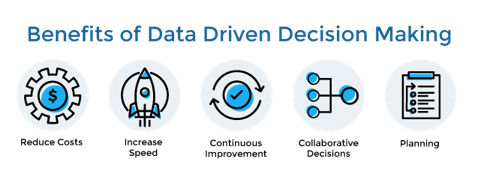

How to Find Real Estate Data in 2021
Want to use real estate data to drive investment decisions? Where do you even begin? In this article, I will detail the current landscape of available real estate data sources and how you can best utilize them for your use case.
Why Should We Care About Data?
Data is the information we use to give us more context on an object or elements in our environment. In real estate, we use data everywhere!

For example, we use data to evaluate the value of a property by using data points like location, size, condition, etc. We plug these features into tools like the BiggerPockets calculators and voila! we are able to evaluate if a property is a good deal or not.
Data and tools allow us to be smarter investors. We choose an investment property based on data rather than picking an address blindly out of a hat (I hope!). This protects us against risk. Thus, allowing us to scale faster.
What Makes Real Estate Market Data Special?
Real estate market data is special because it is a combination of structured (i.e. excel spreadsheets) and unstructured data (i.e. social media).
Real estate data is also sparse. It is not encompassed in one single data source. To get a full picture of the macro and micro view of your real estate market there are numerous data points that impact it.
Let's start with a structured data source we are all familiar with.
MLS (Multiple Listing Service)
The multiple listing service (MLS) is a database established by cooperating real estate brokers to provide data about properties for sale. This data is exclusive for real estate agent access based on the region. However, there are companies that aggregate this data nationwide to make it available for public consumption.
MLS Aggregated Services

Whether you are a new or seasoned investor, you are aware of the household names above! These companies provide real estate data that is consumed by multiple user types including new home buyers, agents, investors, insurance companies, and more.
3 Key Real Estate Data Sources
Now that we have touched on market data at a high level, we can move on to specific data resources.
Economic Trends
In order to choose or evaluate a market, we need to understand economic trends. This includes unemployment data, days on market, inventory, and more.
For example, days on market (DOM) can help us infer whether a market is cooling down or getting hot. In early-mid 2021, the housing market was fueled by low-interest rates and a flood to the suburbs amongst other factors. In this period we saw the market become a seller's market as DOM declined and properties sold within a week.
The below resources provide information on macro market trends at the country, county, and zip code level.
Resources:
Lead Building
Lead building in real estate is acquiring a list of motivated sellers, property owners more inclined to sell. These property owners are motivated to sell for various factors: tax delinquent, recent death, landlords retiring, etc. This can be a great opportunity for a win-win deal that benefits both parties by selling quickly and acquiring at a discount.
To find detail on a property owner you can go to your city township's website. However, if you want a more streamlined approach you can use companies that already aggregate that data at scale.
Resources:
Investment Analysis
While it is fundamental to analyze a property on an individual basis, it takes A LOT of time. Imagine plugging in the numbers for every property in your city into a BiggerPockets calculator to get cash on cash return metrics? That would take forever!
Luckily there are third-party data aggregators (similar to Redfin) that provide their data programmatically through an API (application programming interface). This allows you, the investor, to populate data for an address and evaluate multiple properties within seconds. That way you only analyze properties that meet your specific investment criteria.
Resources:
In-depth Data Deep Dive
Check out my video(s) on how to navigate the data resources shared in this blog:
How to Find Real Estate Data 2021 | Part One
How to Find Real Estate Data 2021 | Part Two
Where to Find More Technical Solutions?
Check out my YouTube Channel, AnalyticsAriel, to get up-to-date insights on technology solutions in real estate.




Comments